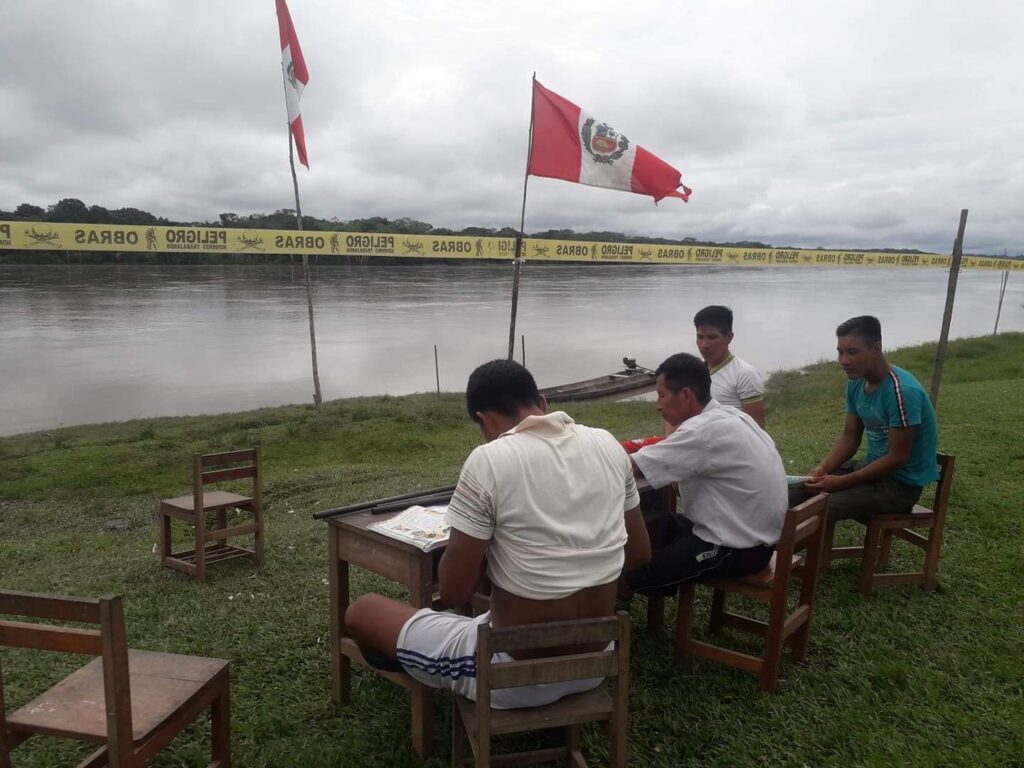Betty Rubio Padilla presenting information about the risks of COVID-19 to the Puerto Arica Community in the Napo River basin.
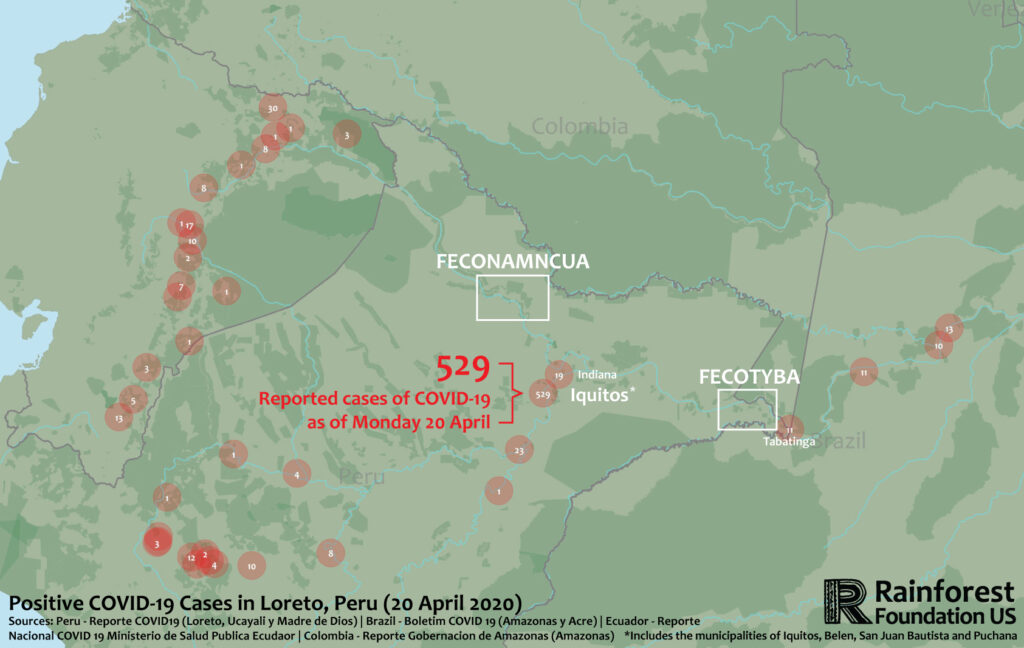
Indigenous Kichwa leader Betty Rubio Padilla, President of the Native Community Federation of the Medio Napo, Curaray y Arabela (Federación de Comunidades Nativas del Medio Napo, Curaray y Arabela, or FECONAMNCUA) and Ticuna leader Francisco Hernandez Cayetano, President of the Federation of the Ticuna and Yaguas Communities of the Lower Amazon (Federación de Comunidades Ticunas y Yaguas del Bajo Amazonas, or FECOTYBA), both affiliates of the Indigenous Peoples’ Organization of the Eastern Amazon (Organización Regional de los Pueblos Indígenas del Oriente, or ORPIO), are actively coordinating their response with Rainforest Foundation US and ORPIO, local government officials from the Ministry of Health, Ministry of Culture and Peruvian security forces to support local communities who are imminently threatened by the COVID-19 pandemic (see map).
Meanwhile, the Peruvian government has been strictly enforcing travel restrictions in Loreto, where they are based, to reinforce the national quarantine, which are negatively affecting indigenous communities’ access to basic necessities, medicine and communication. Rainforest Foundation US has been in regular communication with Betty Rubio Padilla and Francisco Hernandez Cayetano. Their testimony is shared below.
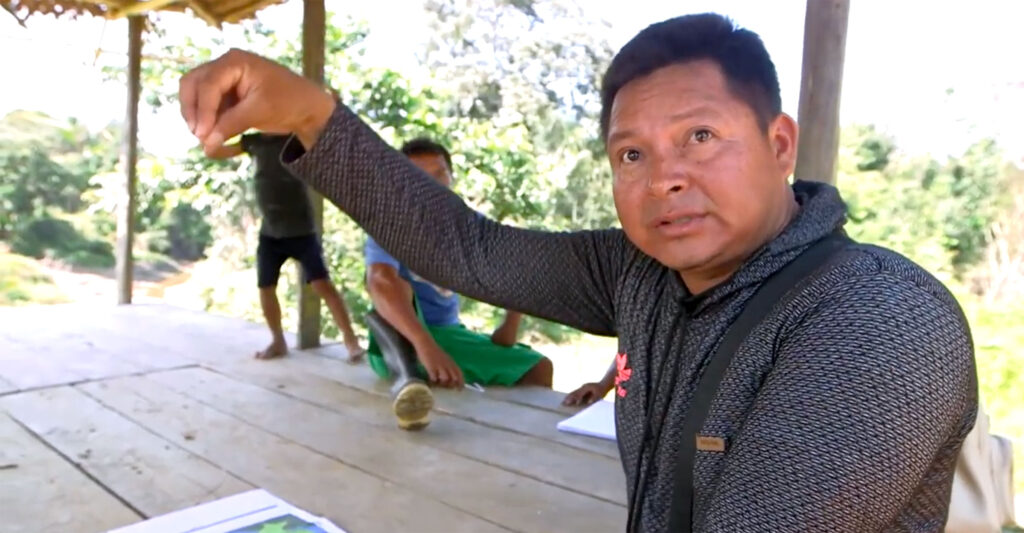
Rainforest Foundation US: How are you seeing COVID-19 impacting your communities?
Betty Rubio: The coronavirus is restricting travel for our community members to protect them from those who could be carrying the virus, especially if it is known that they are coming from the cities. People are really scared to leave their villages and we still do not have protective equipment, so we have to be very strict to minimize our contact with outsiders. However, because of these restrictions, many people are unable to talk or see their relatives in other communities. But what is making us start to worry is the fact that the travel restrictions are causing many, many communities to run out of food.
Francisco Hernandez: Our communities are tremendously concerned about the impacts of the coronavirus could have on them. We have never experienced an epidemic like this. Community members are frightened every time someone has to travel to cities for emergencies. Our communities are very close together and we cannot carry out social distancing like in the cities. In addition, we are very worried that our neighbors from the Brazilian cities of Tabatinga and Benjamin Constant are already infected and what that might mean for our exposure to the virus (See map).
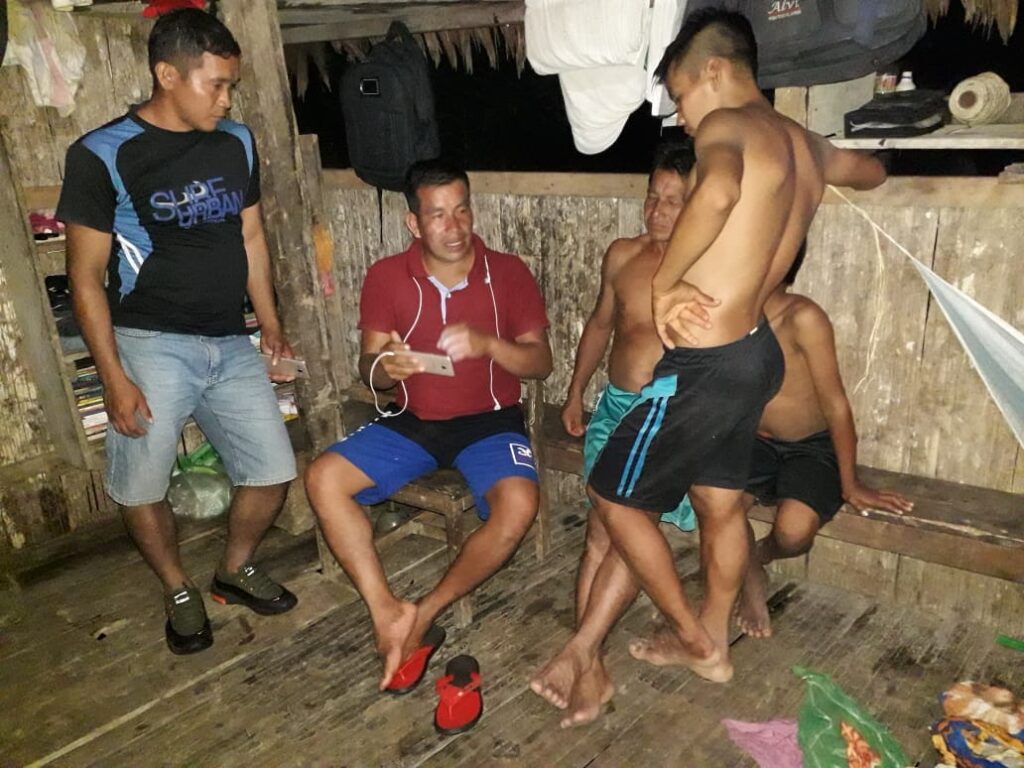
The restricted travel due to the coronavirus keeps us from being able to travel to cities to sell our products and, visa versa, supplying the communities with needed provisions. Now the markets are empty and no outside food is coming to the community. People are starting to run out of food. There is nothing to buy and people cannot sell or trade. This is causing panic. Some communities do not have their own food supply.
Rainforest Foundation US: What measures are you taking to inform and protect the communities you represent?
Betty Rubio: As representatives of the Federation, we are taking great precaution as we communicate with community leaders about the risks of the coronavirus. Most communities do not receive information from the government or media. So we have had to do outreach ourselves to share how this disease spreads, how to protect ourselves, and how to respect the quarantine. We have told the community leaders not to interact with any outsiders, not even a family member who comes from the city. Also, we advised them to avoid going to any city even in the same district because there are many people who are gathering despite the State of Emergency decree. The infographic that ORPIO and Rainforest Foundation US produced has been very helpful because it is information that community leaders trust because it is from us. Because we all have it in our smartphones, we can show it over and over again. We try to reassure them that if they stay in the community where no one can infect them, they are going to be fine. But people are afraid.
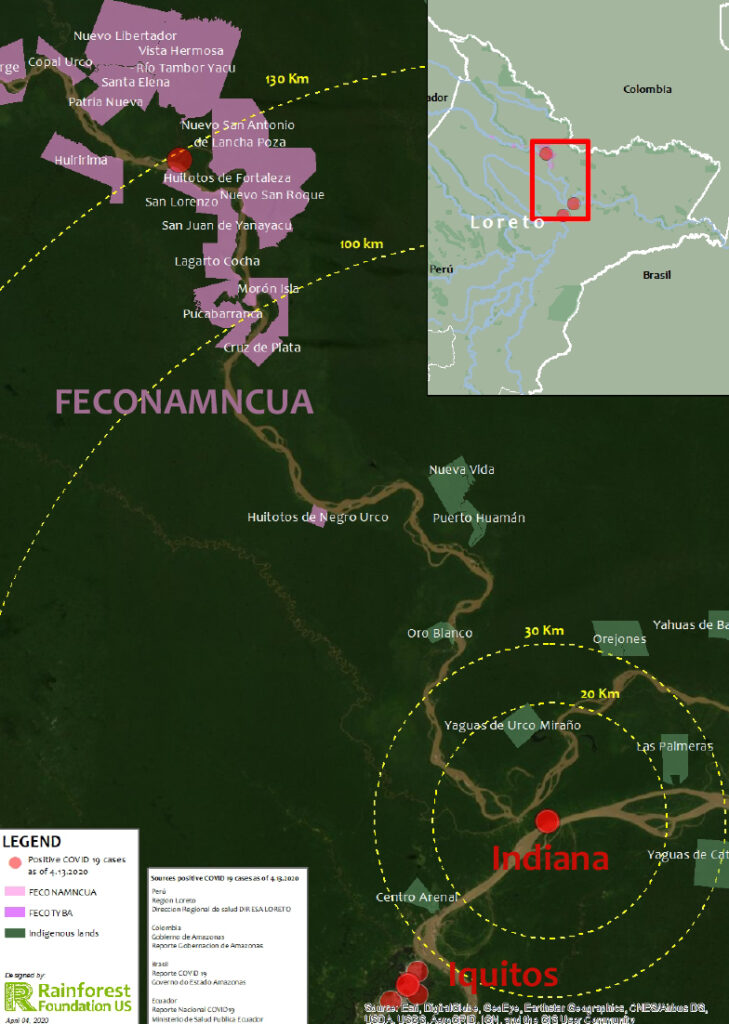
Francisco Hernandez: With the Federation’s support, we are translating and distributing the ORPIO/Rainforest Foundation US infographics in the Ticuna language. Many Ticuna people do not speak Spanish well or read Spanish, so having the information in Ticuna has been very important. Now everybody knows about the coronavirus and are afraid. Now, they prohibit anyone from entering and we tell them to not go to Brazil right now, where there are already many cases of coronavirus. Because of our efforts, community members are not leaving their territories.
Rainforest Foundation US: Are you still experiencing threats to your territories, such as illegal logging and mining? If so, what measures are you taking?
Betty Rubio: The threats to the area in terms of illegal logging and mining have not stopped. These people continue with their activities knowing very well that the authorities are not going to be able to find them since they are in very remote areas. We are very concerned about this continuing. We are looking at how to inform government authorities about these illegal activities to bring the perpetrators to justice. But this will be difficult without the evidence that we usually acquire in our regular monitoring patrols. We cannot travel, but we want to inform the authorities that illegal activities are taking place and solicit their action.
Francisco Hernandez: We have threats in our communities caused by illegal loggers and drug traffickers who are taking advantage of the chaotic situation and lack of law enforcement. Previously, we have coordinated with local authorities, with our satellite-based community monitoring system. Despite the travel restrictions and enforcement of the quarantine, activities such as illegal logging, mining and land invasions continue. We are afraid to confront these actors because of health concerns. The authorities are busy with the enforcement of the quarantine. This situation is likely to result in increasing threats.
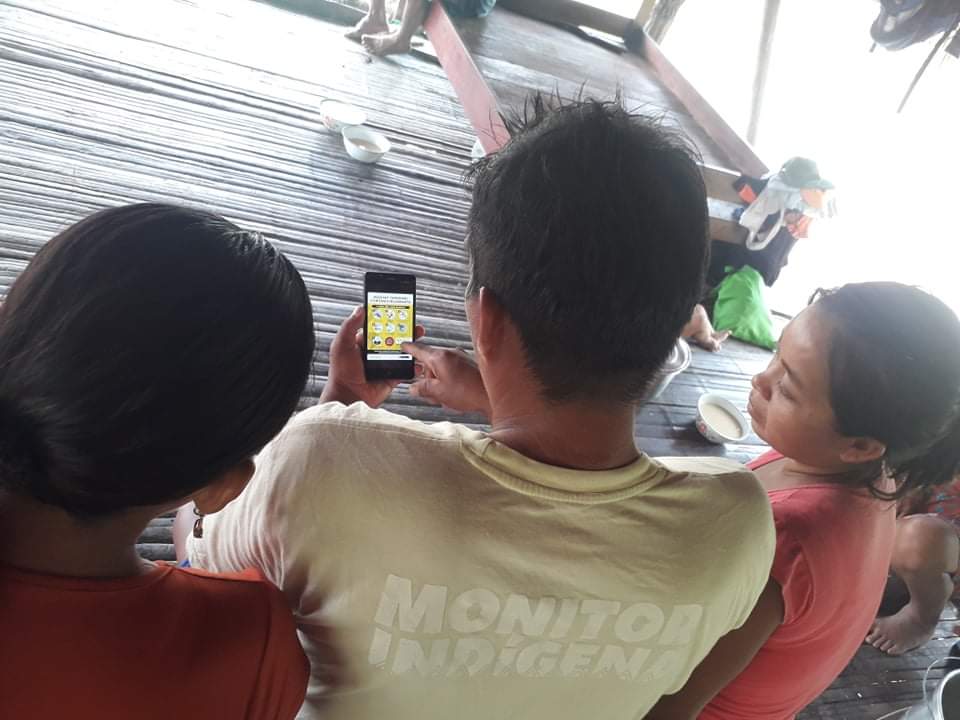
Rainforest Foundation US: What are your community’s needs at this time to confront the pandemic?
Betty Rubio: The most urgent needs right now in the Napo area are medicines. Since community members cannot leave their communities, they are isolated, without access to basic medical supplies. Because of this, they also do not have basic necessities, like soap or matches or salt. The local stores are in short supply because no one can transport the products. In addition, fuel is the fundamental need for the communities that do not even have access to electricity. But the ban on travel is affecting people’s ability to acquire fuel too.
Francisco Hernandez: Our communities urgently need food and basic medicine for common health problems. They need food because the markets are empty. They need medicines because the health posts are empty. There are no supplies. Another need is fuel. Why? Because if somebody comes down with the coronavirus, we will need to get them to a hospital. We do not have protective gear like masks and gloves that they say that we are supposed to wear. But there is nowhere to buy them here. We also need phone credit so that we can stay in contact with the latest information and in case of emergencies.
